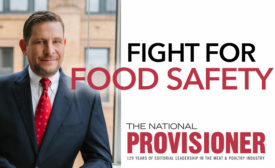Articles by Shawn K. Stevens
Commentary | Fight for Food Safety
COVID-19: Contractual Protection of "Force Majeure" Clauses
Read MoreStay ahead of the curve. Unlock a dose of cutting-edge insights.
Receive our premium content directly to your inbox.
SIGN-UP TODAYCopyright ©2025. All Rights Reserved BNP Media.
Design, CMS, Hosting & Web Development :: ePublishing








